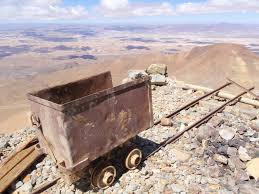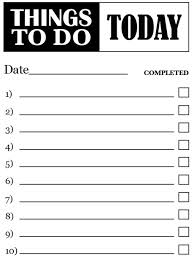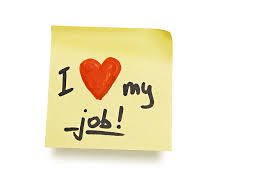 A few weeks ago I was with an amazing group of colleagues who share my passion for helping others move their careers forward. This group, The Institute for Career Transitions (ICT), is deeply concerned and passionate about the long-term unemployed.
A few weeks ago I was with an amazing group of colleagues who share my passion for helping others move their careers forward. This group, The Institute for Career Transitions (ICT), is deeply concerned and passionate about the long-term unemployed.
We want to impact long-term unemployment with facts, data, and compassion. We want to bring light to the concerns and issues of talented professionals who experience long-term unemployment. We want to determine, via research, if coaching support does or does not help professionals who have been out of work more than six months improve their well being and/or return to work. The group’s founder Ofer Sharone, Assistant Professor in the MIT Sloan School of Management, is someone who understands the importance of both courage and support.
Our conversations are always robust. One recent discussion included the concerns and questions many talented professionals deal with when unemployed for six months or more. Rising to the top, was how to discuss, share and/or explain what you have been doing for the period of time since your last job.
Among the top questions I receive as a coach is, “How do I explain being out of world for a long time?” This question is almost always asked with a high level of fear or trepidation. Odds are you will be faced with the question, “What have you been doing?” Whether asked in an interview or while networking, does this question strike you with fear or puzzlement?
The time between jobs is often referred to as “the gap” — and I have a unique way of dealing with “the gap.”
I began using a phrase to help clients, workshop attendees and people in general to understand a simple process to help you move away from all that fear, concern and puzzlement — it’s called “mining the gap.”
Mining is, in its simplest definition, the process of looking for gold, silver and gems. And, “mining the gap” is the process of unlocking the gems you uncover during your gap, your time of unemployment.
This concept came to me several years ago after visiting an abandoned silver mine. I got a few feet into the mine and froze. Had my guide not noticed my fear I would have missed an amazing experience.
My guide offered support, information, and asked questions. The support and questions helped me determine my options and select a direction. His support insured me I was not alone. It allowed me to reach inside myself, decide want I wanted and find the courage to step deeper into the mine.
I was so grateful for his care and concern that day. The experience is one I will never forget.
The experience was so much more than just learning what silver ore looks like and how its beauty is brought to the surface to be unlocked and transformed into amazing products — it also provided a way to put all the days’ sights, smells and emotions into context. It also provided a community to share the experience.
My silver mine guide offered me the same thing that career coaches and coaching communities offer clients — care, concern, guidance and somewhere to turn when we are unsure how to move forward.
I love silver and every time I look at pieces of silver jewelry or other useful everyday items, I think of that day, that community and those connections.
It took courage for that guide to help me. It took courage for me to step into the mine, to see and to share the experience. I could not have found courage on that day (or many other days) alone. I believe we are hard-wired to connect, to support one another and to journey together.
Someone stepped close, saw my fear and did not exploit or criticize me. That someone offered support, asked questions, and let me chose what was best for me.
If you are looking for support in your job search, or in anything you do, look around, odds are support is within reach.
Here are 3 tips for tapping support as you are “mining the gap:”
- Have the courage to be honest with yourself about the fear, the emotions, the concern or puzzlement you feel. Say your fears, concerns, or emotions out loud and write them down.
- Ask and answer, “What is it I that want?” Do you want: help or support, answers to your questions, information, or someone to listen to your concerns/emotions? Whatever you want, ask for it out loud and write it down.
- Look around for what your want. It is within reach. If you ask for help or support, listen, say thank you and then decide what you will do. Take the best action for you. Results come from action.
Whether the gap you need to mine is comprised of what you have been doing since your last job or your gap is a career you want to transform, take action. The action you take by stepping in and “mining the gap” will be an amazing experience.
Do you have a job search question or a question about “mining the gap?” Post your question or comments below or give me a call.
career coaching, Institute for Career Transitions, job interviews, long-term unemployed, mining the gap, MIT
 At the end of the week we, in the United States, will celebrate July 4th — our Declaration of Independence in 1776.
At the end of the week we, in the United States, will celebrate July 4th — our Declaration of Independence in 1776.


 Finding yourself without a job and in a job search can be fun, exciting and full of adventure. It can also be filled with fear, questions and be a very unproductive time.
Finding yourself without a job and in a job search can be fun, exciting and full of adventure. It can also be filled with fear, questions and be a very unproductive time. Tomorrow is April 1st – April Fool’s day! And, at least in the Western world, a day of light-hearted fun and for me a sure sign Spring is near. The days are growing longer and that means more time to be outside.
Tomorrow is April 1st – April Fool’s day! And, at least in the Western world, a day of light-hearted fun and for me a sure sign Spring is near. The days are growing longer and that means more time to be outside.
 A common question I hear is, “How do I add a part-time job to my resume and/or LinkedIn profile?”
A common question I hear is, “How do I add a part-time job to my resume and/or LinkedIn profile?”

 It’s time to drop the “stuff.” It’s time to get real, get personal and talk to people.
It’s time to drop the “stuff.” It’s time to get real, get personal and talk to people.



